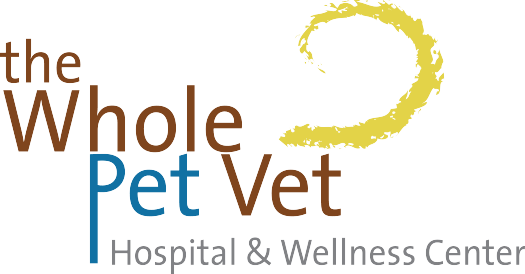FAQs
Frequently Asked Questions at The Whole Pet Vet Hospital & Care Center
Our team is here to help you and your family understand your pet’s health needs and make more informed decisions about their well-being. Find answers to some of our most common questions below.
FAQs
What is the closest emergency and specialty care facility?
While The Whole Pet Vet Hospital and Wellness Center provides urgent care during business hours, we are not a 24-hour emergency hospital. For after-hours or specialty care, we typically refer clients to nearby facilities such as SAGE Veterinary Centers in Campbell or MedVet in Silicon Valley. If your pet is experiencing a life-threatening emergency, please contact one of these facilities immediately.
How do I schedule my pet for an integrative medicine consult?
Integrative services—such as acupuncture, chiropractic care, herbal medicine, and rehabilitation—are offered by select veterinarians on our team. These appointments require a separate consultation and are scheduled differently from general visits. You can request an integrative medicine consult through our Integrative Consult/Acupuncture Intake Form, or by calling or emailing our team directly.
Why should my pet take heartworm preventatives?
Heartworm disease, transmitted by mosquitoes, can cause severe damage to a pet’s heart and lungs. It is often life-threatening and expensive to treat, but it is entirely preventable. Monthly heartworm preventives are a safe, effective way to protect your pet year-round, especially in areas like Los Gatos and the greater Bay Area, where mosquitoes are present.
What do I do if my pet ingests a poison or toxin?
If your pet has eaten something potentially toxic, call us immediately during business hours. For after-hours emergencies, contact an emergency veterinary hospital or the ASPCA Animal Poison Control Center (888-426-4435). Do not wait for symptoms to appear—prompt action is essential.
Do you offer physical rehabilitation?
Do you offer acupuncture?
Where can I get my pet’s prescriptions filled?
We offer both an in-house pharmacy and an online prescription portal for convenient refills. Our veterinarians may also provide written prescriptions if you choose to use an outside pharmacy. We recommend purchasing directly through us or our trusted online partners to ensure product safety and authenticity.
How often does my pet need to be seen for an examination?
Most pets should have a wellness exam at least once a year. Senior pets, puppies, kittens, and pets with chronic health issues may need more frequent checkups. Regular exams allow us to detect health concerns early, provide timely treatment, and keep your companion on track for lifelong wellness.
What species of pets do you treat?
What does Fear Free certified mean?
Our entire team is Fear Free certified, which means we use proven techniques to reduce stress and anxiety during veterinary visits. From gentle handling to a calm environment, we focus on making every visit as comfortable as possible for pets and their families.
Do you provide end-of-life care?
Yes. We offer compassionate euthanasia and cremation services to support pets and families during this difficult time. Our goal is to provide dignity, comfort, and peace throughout the process, while guiding families with compassion and respect.
Do you work with pet insurance?
Do you accept walk-ins?
We recommend scheduling an appointment to ensure your pet receives timely, personalized care. However, we may be able to accommodate urgent needs on the same day, depending on availability. Please call us before arriving to confirm.
